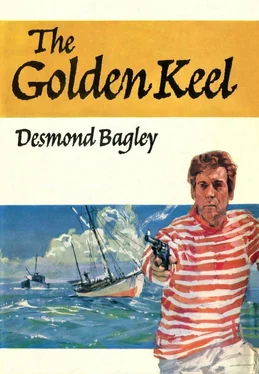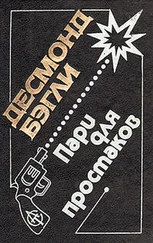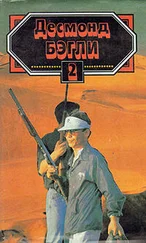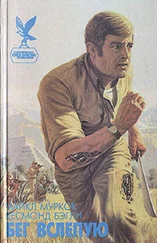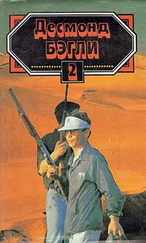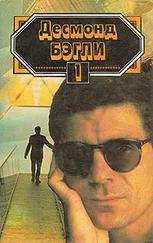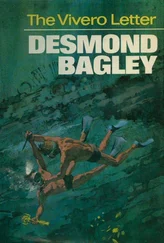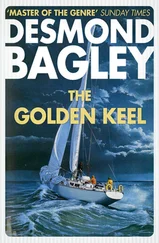‘A what?’ asked Parker plaintively. He always pulled Coertze’s leg about his South Africanisms.
‘Never mind that,’ snapped Coertze. ‘Get this stuff down to the road quick. We’ve got a job on.’
They loaded up the machine-guns and plunged down the hillside. Once on the road Coertze did a quick survey. ‘They’ll come round that bend slowly,’ he said. ‘Alberto, you take Donato and put your machine-gun there, where you can open up on the last two trucks. The last two, you understand. Knock ‘em out fast so the others can’t back out.’
He turned to Harrison and Parker. ‘Put your gun over here on the other side and knock out the first truck. Then we’ll have the others boxed in.’
‘What do I do?’ asked Walker.
‘You come with me,’ Coertze started to run up the road, followed by Walker. He ran almost to the bend, then left the road and climbed a small hillock from where he could get a good sight of the German convoy. When Walker flopped beside him he already had the glasses focused.
‘It’s four trucks not six,’ he said. ‘There’s a staff car in front and a motor-cycle combination in front of that. Looks like one of those BMW jobs with a machine-gun in the side-car.’
He handed the glasses to Walker. ‘How far from the tail of the column to that staff car?’
Walker looked at the oncoming vehicles. ‘About sixty-five yards,’ he estimated.
Coertze took the glasses. ‘O.K. You go back along the road sixty-five yards so that when the last truck is round the bend the staff car is alongside you. Never mind the motor-cycle — I’ll take care of that. Go back and tell the boys not to open up until they hear loud bangs; I’ll start those off. And tell them to concentrate on the trucks.’
He turned over and looked back. The machine-guns were invisible and the road was deserted. ‘As nice an ambush as anyone could set,’ he said. ‘My oupa never did better against the English.’ He tapped Walker on the shoulder. ‘Off you go. I’ll help you with the staff car as soon as I’ve clobbered the motor-cycle.’
Walker slipped from the hillock and ran back along the road, stopping at the machine-guns to issue Coertze’s instructions. Then he found himself a convenient rock about sixty yards from the bend, behind which he crouched and checked his sub-machine-gun.
It was not long before he heard Coertze running along the road shouting, ‘Four minutes. They’ll be here in four minutes. Hold your fire.’
Coertze ran past him and disappeared into the verge of the road about ten yards farther on.
Walker said that four minutes in those conditions could seem like four hours. He crouched there, looking back along the silent road, hearing nothing except his own heart beating. After what seemed a long time he heard the growl of engines and the clash of gears and then the revving of the motor-cycle.
He flattened himself closer to the rock and waited. A muscle twitched in his leg and his mouth was suddenly dry. The noise of the motor-cycle now blanked out all other sounds and he snapped off the safety catch.
He saw the motor-cycle pass, the goggled driver looking like a gargoyle and the trooper in the sidecar turning his head to scan the road, hands clutching the grips of the machine-gun mounted in front of him.
As in a dream he saw Coertze’s hand come into view, apparently in slow motion, and toss a grenade casually into the sidecar. It lodged between the gunner’s back and the coaming of the sidecar and the gunner turned in surprise. With his sudden movement the grenade disappeared into the interior of the sidecar.
Then it exploded.
The sidecar disintegrated and the gunner must have had his legs blown off. The cycle wheeled drunkenly across the road and Walker saw Coertze step out of cover, his sub-machine-gun pumping bullets into the driver. Then he had stepped out himself and his own gun was blazing at the staff car.
He had orientated himself very carefully so that he had a very good idea of where the driver would be placed. When he started firing, he did so without aiming and the windscreen shattered in the driver’s face.
In the background he was conscious of the tac-a-tac of the machine-guns firing in long bursts at the trucks, but he had no time or desire to cast a glance that way. He was occupied in jumping out of the way of the staff car as it slewed towards him, a dead man’s hand on the wheel.
The officer in the passenger seat was standing up, his hand clawing at the flap of his pistol holster. Coertze fired a burst at him and he suddenly collapsed and folded grotesquely over the metal rim of the broken windscreen as though he had suddenly turned into a rag doll. The pistol dropped from his hand and clattered on the ground.
With a rending jar the staff car bumped into a rock on the side of the road and came to a sudden stop, jolting the soldier in the rear who was shooting at Walker. Walker heard the bullets going over his head and pulled the trigger. A dozen bullets hit the German and slammed him back in his seat. Walker said that the range was about nine feet and he swore he heard the bullets hit, sounding like a rod hitting a soft carpet several times.
Then Coertze was shouting at him, waving him on to the trucks. He ran up the road following Coertze and saw that the first truck was stopped. He fired a burst into the cab just to be on the safe side, then took shelter, leaning against the hot radiator to reload.
By the time he had reloaded the battle was over. All the vehicles were stopped and Alberto and Donato were escorting a couple of dazed prisoners forward.
Coertze barked, ‘Parker, go up and see if anyone else is coming,’ then turned to look at the chaos he had planned.
The two men with the motor-cycle had been killed outright, as had the three in the staff car. Each truck had carried two men in the cab and one in the back. All the men in the cabs had been killed within twenty seconds of the machine-guns opening fire. As Harrison said, ‘At twenty yards we couldn’t miss — we just squirted at the first truck, then hosed down the second. It was like using a howitzer at a coconut-shy — too easy.’
Of the seventeen men in the German party there were two survivors, one of whom had a flesh wound in his arm.
Coertze said, ‘Notice anything?’
Walker shook his head. He was trembling in the aftermath of danger and was in no condition to be observant.
Coertze went up to one of the prisoners and fingered the emblem on his collar. The man cringed.
‘These are S.S. men. All of them.’
He turned and went back to the staff car. The officer was lying on his back, half in and half out of the front door, his empty eyes looking up at the sky, terrible in death. Coertze looked at him, then leaned over and pulled a leather briefcase from the front seat. It was locked.
‘There’s something funny here,’ he said. ‘Why would they come by this road?’
Harrison said, ‘They might have got through, you know. If we hadn’t been here they would have got through — and we were only here by chance.’
‘I know,’ said Coertze. ‘They had a good idea and they nearly got away with it — that’s what I’m worrying about. The Jerries aren’t an imaginative lot, usually; they follow a routine. So why would they do something different? Unless this wasn’t a routine unit.’
He looked at the trucks. ‘It might be a good idea to see what’s in those trucks.’
He sent Donato up the road to the north to keep watch and the rest went to investigate the trucks, excepting Alberto who was guarding the prisoners.
Harrison looked over the tailboard of the first truck. ‘Not much in here,’ he said.
Walker looked in and saw that the bottom of the truck was filled with boxes — small wooden boxes about eighteen inches long, a foot wide and six inches deep. He said, ‘That’s a hell of a small load.’
Читать дальше
Конец ознакомительного отрывка
Купить книгу
